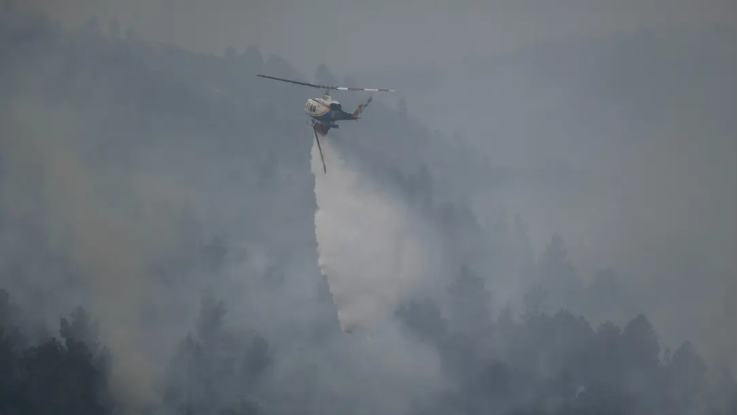Israel: Progress Toward Lebanon Cease-fire, Will Expand Military Operations if Lebanon Says No
Israel's new Foreign Minister Gideon Sa'ar said on Monday that there was some progress toward a cease-fire in Lebanon, though he clarified that the war against Hezbollah was not yet over and the main problem was how the cease-fire would be enforced. Hezbollah said no official agreement has been p...
0:00
/1861
Facts
- Israel's new Foreign Minister Gideon Sa'ar said on Monday that there was some progress toward a cease-fire in Lebanon, though he clarified that the war against Hezbollah was not yet over and the main problem was how the cease-fire would be enforced. Hezbollah said no official agreement has been presented so far.[1]
- Sa'ar added that Russia could play a part in a potential cease-fire by stopping Hezbollah from rearming via Syria. Both Russia and Hezbollah deployed to Syria to assist the Syrian government in fighting rebels throughout the country. Syria acts as a land corridor for Iranian weapons destined for Lebanon.[2][1]
- Another official told the Times of Israel that Israel and the US were discussing Israel's 'ability and legitimacy to operate against any threat from Lebanon.' The official added that Israel would expand its military operations in Lebanon if an agreement was not reached.[3]
- Fighting in both south Lebanon and Gaza continued unabated. Hezbollah fired around 90 rockets at the Israeli city of Haifa on Monday, wounding four. Israeli strikes in Lebanon on Sunday killed at least 38 people, including seven children. In Gaza, Israel pressed ahead with its offensive in the north of the strip.[4][5][6]
- Negotiations to reach a cease-fire in Gaza and the release of Israeli hostages have again stalled. Israeli forces have besieged three hospitals in and around Jabalia in northern Gaza, saying that Hamas was operating from them, which Hamas and Gaza's health authorities deny.[7][8]
- Meanwhile, the US continues to pressure Israel to increase aid to Gaza, which has fallen to its lowest levels in almost a year. The US told Israel last month that it had 30 days to increase aid to Gaza, but Israel has seemingly ignored most of the demands.[9]
Sources: [1]Reuters (a), [2]Voice of America, [3]Timesofisrael (a), [4]Timesofisrael (b), [5]BBC News, [6]Al Jazeera, [7]Reuters (b), [8]Associated Press and [9]Guardian.
Narratives
- Pro-establishment narrative, as provided by NBC. Though the situation in the region continues to escalate, the US has stood firm in its role as a mediator. Israel has every right to respond to the daily terror attacks it has seen since Oct. 7. However, it is in no one's interest for tensions to explode into a wider regional war. The US will continue to work toward regional stability.
- Pro-Israel narrative, as provided by Jerusalem Post. Israel has been incredibly patient regarding the situation in the north, but, after a year of daily terror attacks on Israeli civilians, Israel has been forced to deal with Hezbollah more aggressively. Israel wants peace, but it cannot allow Hezbollah and other Iran-backed terror groups to threaten its society in such an existential way.
- Pro-Palestine narrative, as provided by Middle East Eye. Israel has escalated the situation in the region every chance it has gotten, with the US supporting it every step of the way. Indeed, Israel has demonstrated that it seeks to expand the genocidal campaign that began in Gaza to Lebanon. Though the US, the most powerful country in the world, has continued its charade that it wants de-escalation, the reality is the US fully supports Israel's crimes across the region.
- Narrative D, as provided by Almayadeen. Though Hezbollah and Lebanon have experienced immense suffering for supporting Palestine against Israel's genocidal actions, the group is capable of fighting for many years to come. It has effectively countered Israel's attempts at advancing into Lebanese territory and will continue to defend Lebanon until a suitable political solution is offered.







